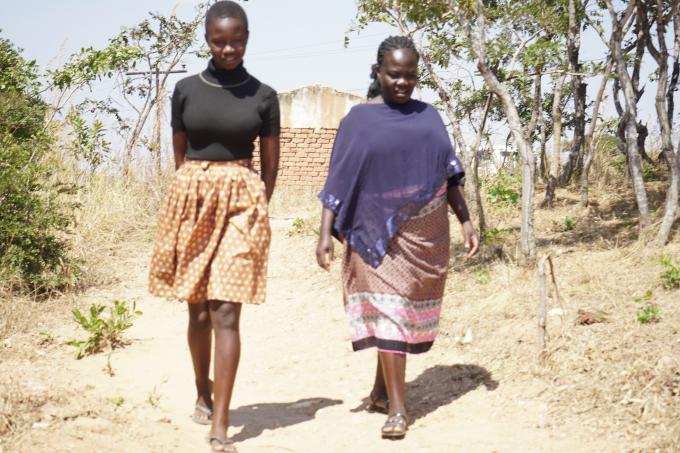Children's Voices Empower Change: Responsive Leadership Listens, Acts
In Mzimba district, Northern Malawi, determined children are boldly confronting adversity, paving the way for transformative change.
Among these remarkable individuals stands Memory, a sixteen-year-old whose life journey has been marked by daunting challenges. Her unwavering resilience has led her through a path filled with unexpected twists.
Memory has lived a life separated from her parents, who divorced, leaving her in a state of uncertainty. She poignantly shares, "I don't know where my father is, and I've heard that my mother remarried in Chitipa. I can't even recall the last time I saw them."
Raised by her grandmother and an uncle who relocated her to Blantyre for education, Memory faced yet another abrupt upheaval when her uncle tragically passed away on the brink of her secondary education. She recounts, "I was compelled to return and live with my grandmother once more."
During this challenging period, Memory's grandmother resorted to selling tomatoes, laundering clothes for others, and selling the chickens they were raising to scrape together funds for Memory's first term in school. Financial constraints loomed large, compelling her to temporarily set aside her education and assist her grandmother with the tomato business.
Reflecting on this trying time, Memory states, "My grandmother and I considered the idea of me leaving school and contemplating marriage. I actually left school for at least two months." It was during this dark period that a glimmer of hope emerged. Memory learned about a bursary program offered through the social welfare office and approached them with determination, sharing her hardships and seeking assistance.
For the past two years, Memory has been a beneficiary of this bursary program, which has enabled her to continue her education. As she embarks on the final year of her secondary school journey, Memory serves as a symbol of unwavering resilience, determination, and the transformative power of support.
Memory emphasizes that the availability of fees has made her dreams of becoming a medical doctor more attainable.
Memory's access to school fees was made possible through the Child Parliament, implemented with support from Save the Children. This platform aims to engage community, district, and national-level duty bearers in providing coordinated and holistic solutions to challenges affecting children.
Michael, Deputy Speaker for Mzimba South and Leader of the House of the National Children's Parliament, explains that since the introduction of the Children's Parliament in 2019 in the district, the most pressing issue that consistently emerges is the lack of school fees among learners.
He states: "As the Children's Parliament, our primary responsibility is to hold duty bearers accountable. During our sessions, we invite various duty bearers to our sessions and present our resolutions to them for action. Subsequently, we follow up on these resolutions, which has yielded positive results, such as an increase in bursaries."
Over time, the number of beneficiaries in the CDF bursary scheme has grown from about 100 to over 500, thanks to the collaboration between the Children's Parliament and duty bearers. Michael emphasizes that these achievements extend beyond Mzimba South, reaching a national scale, as they present these issues to the Speaker of the National Assembly during sessions in Parliament.
Bernard Nangwale, Mzimba South social welfare officer, explains that over the past three years, children have been empowered to actively participate in matters that affect them.
He notes: "Through their participation, children have been able to influence decisions related to school bursaries, especially through the constituency development fund."
Nangwale acknowledges that access to Constituency Development Fund (CDF) bursaries and a high dropout rate have been significant concerns repeatedly raised by child parliamentarians.
He states: "Previously, the CDF bursary was heavily politicized because it was managed by the member of Parliament. However, with child participation activities, social oversight ensures that guidelines are followed, and the most deserving and needy students receive support."
The social welfare office has been responsible for organizing interface meetings, providing policy guidance, and offering leadership in child participation.
Jacob Hara, the area's Parliamentarian as well as Minister of Transport and Public Works, has been one of the most responsive duty bears.
He explains that, in his role as parliamentarian, he has encountered numerous school dropouts and desperate parents blessed with academically talented children but lacking the resources to support them. Through engagement with parents and children, he has established a vetting process that prioritises the neediest for bursary access.
Hara concludes: "Our engagement has been highly beneficial in identifying those we can assist. However, given the limited resources on the ground, there is still much more we aspire to achieve."
 Malawi
Malawi 